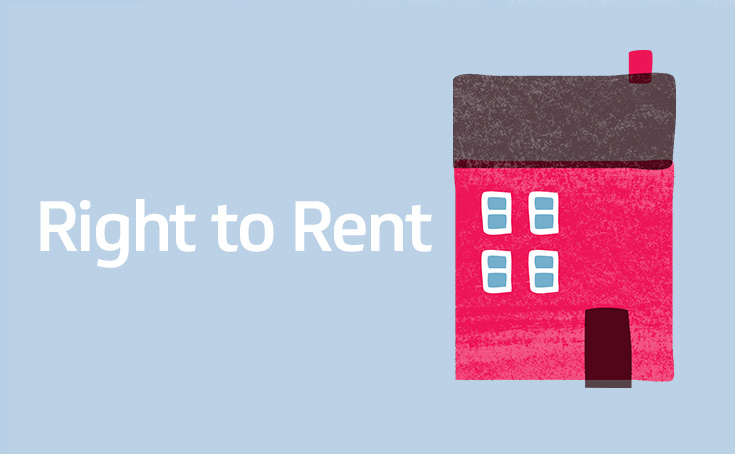Regular readers will know that I am always a bit nervous when the Government announce a new way of doing things, or release their latest idea on reforming the private rented sector.
However, I can report feeling unusually thrilled at changes that came into play last Wednesday (6th April 2022) to the way you can conduct a right to rent check on your prospective tenants. I had to check my enthusiasm as I still need to maintain my general cynicism towards the policies churned out by the Whitehall mob but these adjustments will actually make life a lot easier for landlords and agents.
Ever since the government decided that we should be an extension of the UK’s border force via the Immigration Acts 2014 and 2016, it has fallen on us to ensure that anyone that rents a property has a legitimate right to reside. This meant asking and checking original identification in person with the tenant, and ensuring we had certain documents from different lists. Then Brexit came along and we had a whole lade of confusion while we navigated our way through settled and pre-settled status.
The pandemic served as a catalyst to the latest changes in that it became allowable to do the checks remotely and thanks to Zoom and similar, it made life a lot simpler. This has been extended a few times as the crisis dragged on and is currently acceptable until the end of September 2022.
The other plus to the pandemic is that the government began to roll out an online system for checking tenants right to rent. This has actually proven remarkably successful (who would have thought) and it is now a cleaner process. In a nut shell here are the main points:
For a British or Irish citizen then a valid or expired passport is acceptable. No further checks then needed for the duration of their tenancy.
Where a tenant has an EU settled status then you can check with the home office using this link https://www.gov.uk/prove-right-to-rent They will be able to confirm if the tenant has this status and again, no further checks would be required.
Physical biometric cards or permits can no longer be accepted for the right to rent checks. Instead the tenant will have to supply a share code which can be used on the link above. Or they can show you alternative documents that are stated in the Right to Rent Checks: A user guide for tenants and landlords (At the time of posting this, the guide has not been updated)
Nationals from any EEA country, Australia, Canada, Japan, New Zealand, South Korea or USA would be required to produce their passport and one of the following:
- An original or copy of a boarding pass or electronic boarding pass for air, rail or sea travel to the UK, establishing the date of arrival in the UK in the six months prior.
- An original or copy airline, rail or boat ticket or e-ticket establishing the date of arrival in the UK in the six months prior.
- Any type of booking confirmation (original or copy) for air, rail or sea travel to the UK establishing the date of arrival in the UK in the six months prior.
- Any other documentary evidence which shows the date of arrival in the UK in the six months prior.
This gives these nationals a right to reside in the UK for a minimum of six months. You can grant a tenancy for twelve months as you are not required to check again for twelve months or the expiry of the visa whichever date is longer.
When these tenants decide they want to stay for longer than six months then they will need they will need to apply through the points based immigration scheme and will then be issued with the biometric residence permit or card and future checks could then be done online. It would then be sensible to check the card or permit once it is issued.
People from elsewhere in the world will also come into the country on the points based system but do not enjoy the first 6 months without needing a visa.
So there we have it. Let’s hope this is more straightforward and makes life easier for landlords and agents, as well as for tenants who will no longer had to sift through paperwork to find the relevant documents.
Please note the date this article was published as the law may have changed since it was posted. You should always seek independent legal advice if you are intending to rely on any of the contents.
